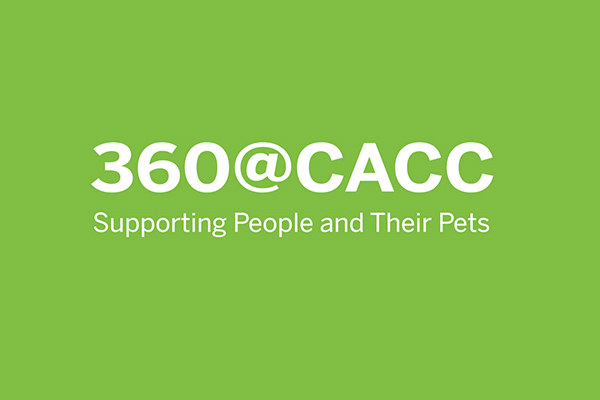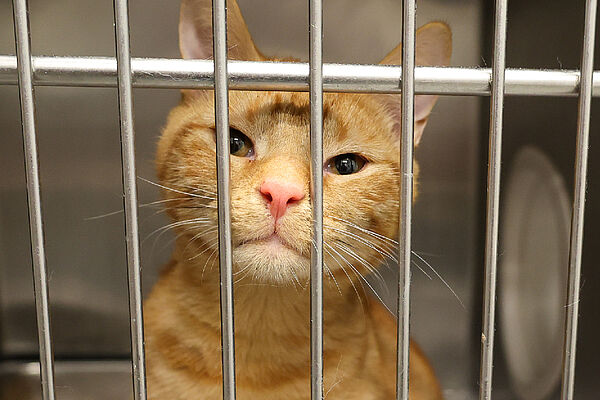Support CACC adoptions:
Facilitating successful adoptions
Without budgeted positions for adoptions or volunteer management, CACC is reliant on the support of volunteers for these programs. Previously, potential adopters could wait hours to meet a pet or leave without ever meeting a pet. PAWS Chicago is now providing a full-time PAWS staff member onsite to provide adoption support and matchmaking, ensuring potential adopters get the chance to meet pets and leave with a pet that best matches their home and lifestyle for successful adoptions.
Getting CACC pets ready for adoption
By law, all pets must receive spay/neuter before being adopted, but limited medical staffing at CACC means homeless pets wait weeks for the procedure at CACC, even with an interested adopter.
Through our Big Fix program, PAWS provides weekly transportation, spay/neuter and vetting (microchip, heartworm test and vaccines) for CACC pets who are most at-risk. Following vetting, these animals are adoption-ready, eliminating weeks of waiting and opening more space for new arrivals in need.
Support fellow rescue groups:
Offering subsidized veterinary services to qualifying rescues
For local rescue groups without in-house medical capabilities, the cost of basic vetting can prevent them from transferring CACC pets into their own adoption programs. For large breed dogs or cats that these rescue groups are interested in transferring out of CACC, PAWS will provide spay/neuter and vetting (microchip, heartworm test and vaccines) for a highly subsidized cost.
Support pet owners:
Keeping pets in their homes with people who love them
Through our Pet Owner Support program on site at CACC, the 360@CACC team offers medical services such as spay/neuter, vaccinations and treatment for acute illness or injury to help pets stay in their homes with their families. We have found that around 15% of people are able to keep their pets when they have support.
Keeping pets out of the city impoundment facility
In situations where pets cannot stay in their homes, PAWS works to divert owner surrenders to CACC into our own adoption program instead. Keeping them from overcrowded facilities like CACC is the best way to ensure their safety from disease transmission, and the resulting risk of euthanasia.
View 360@CACC Data Tables



